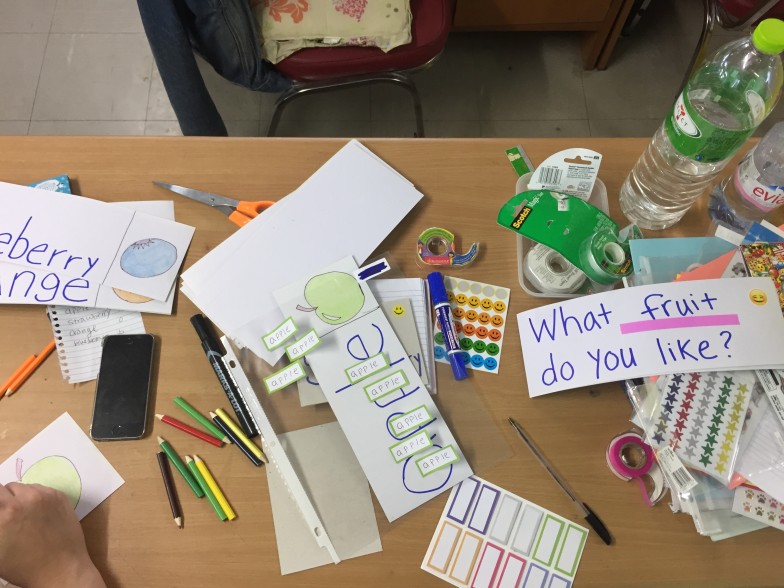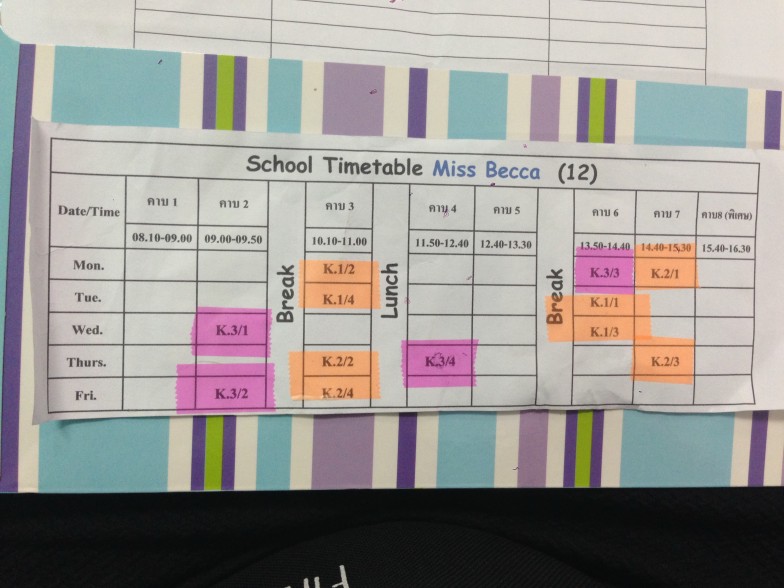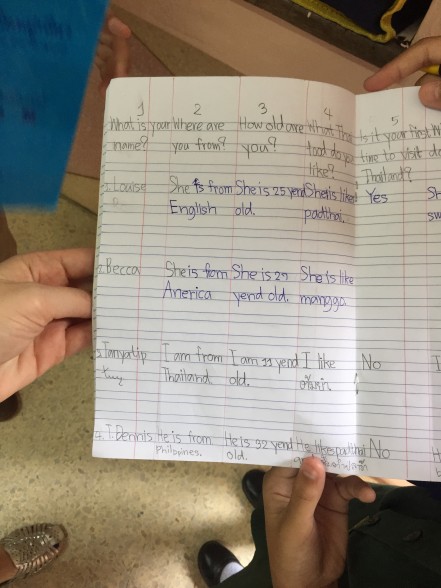The proof is in the planning!
If you’re like me, before you leave you’re itching to know what to expect when it comes to lesson planning. I’ll give you my 2 Baht, but bear in mind that everyone has a unique perspective based on their classroom experience, and the expectations of their school.
As I teach at a private school, I am fortunate in the sense that there are plenty of resources and office supplies around. The other side of that is that there are certain expectations of how lessons will be executed, so that they fit with the style of the English department. At some of my friends’ temple schools, resources were not as robust, and they were the entire English department so anything they did was novel.
Embrace the Thai way of life
In Thailand, things can be more fluid than we are accustomed to at home. Bus timetables, prices, lesson plans…even the spiciness of your favourite dish at a restaurant! Some of this can be attributed to cultural differences, and some is just a by-product of the very real language barrier. From the start, I was supposed to be at a different school in a more rural area, so my experience would have been very different. Not better, not worse, just completely different due to a last minute change.
Keep something in the back pocket!
Initially, we were asked to teach separately. After two weeks, they were pleased with what we were doing individually, they wanted us to teach more classes together. We did, but there were still occasions where we were split up for activities. These moments reinforced the importance of just going with the flow!
We were asked to do different topics each week by Kindergarten 1, 2 and 3, as well as grades 1 through 6. This turned out to be too much planning, so we chose broader topics and just adjusted the lesson material for each age group. As the saying goes, failing to plan is planning to fail. So, we made sure to have plenty of visuals, songs, and simple question and answer topics for each class, in addition to some back up material. We learned quickly that having extra stuff prepared was useful for those lessons where you receive blank stares for the first sixty seconds.
Recycle – it helps the planet, and your lessons!
By the third week, we began reviewing previous material because the students’ familiarity helped keep up the pace of the lessons. We covered topics like fruit, professions, body parts, weather, emotions and family. The more energy we brought to our lessons, the more engaged the students were. Lesson planning is not something to stress about, most of the time we were able to convey the topics in English using excitement and visual aids. Just come in with an open mind and the students will learn!
Teacher Becca’s Pro Tips:
• Go with the flow: Things *will* change, and they will be out of your control. However, your outlook in response to these unforeseen adjustments will largely determine your day to day.
• Be yourself! The students and teachers alike want to know you, so express that in any way you can. Sharing photos from home of your family and friends is always fun.
• Ok Google: Translate a few phrases, learn a few words, and use technology to bring you closer together with your Thai students and fellow teachers. And, of course, use it to your advantage when lesson planning, so you don’t have to reinvent the wheel!
Until next time,
Teacher Becca
If you’ve enjoyed reading Teacher Becca’s tips on teaching English in Thailand, why not take a look at our Paid Thailand TEFL Internship!






